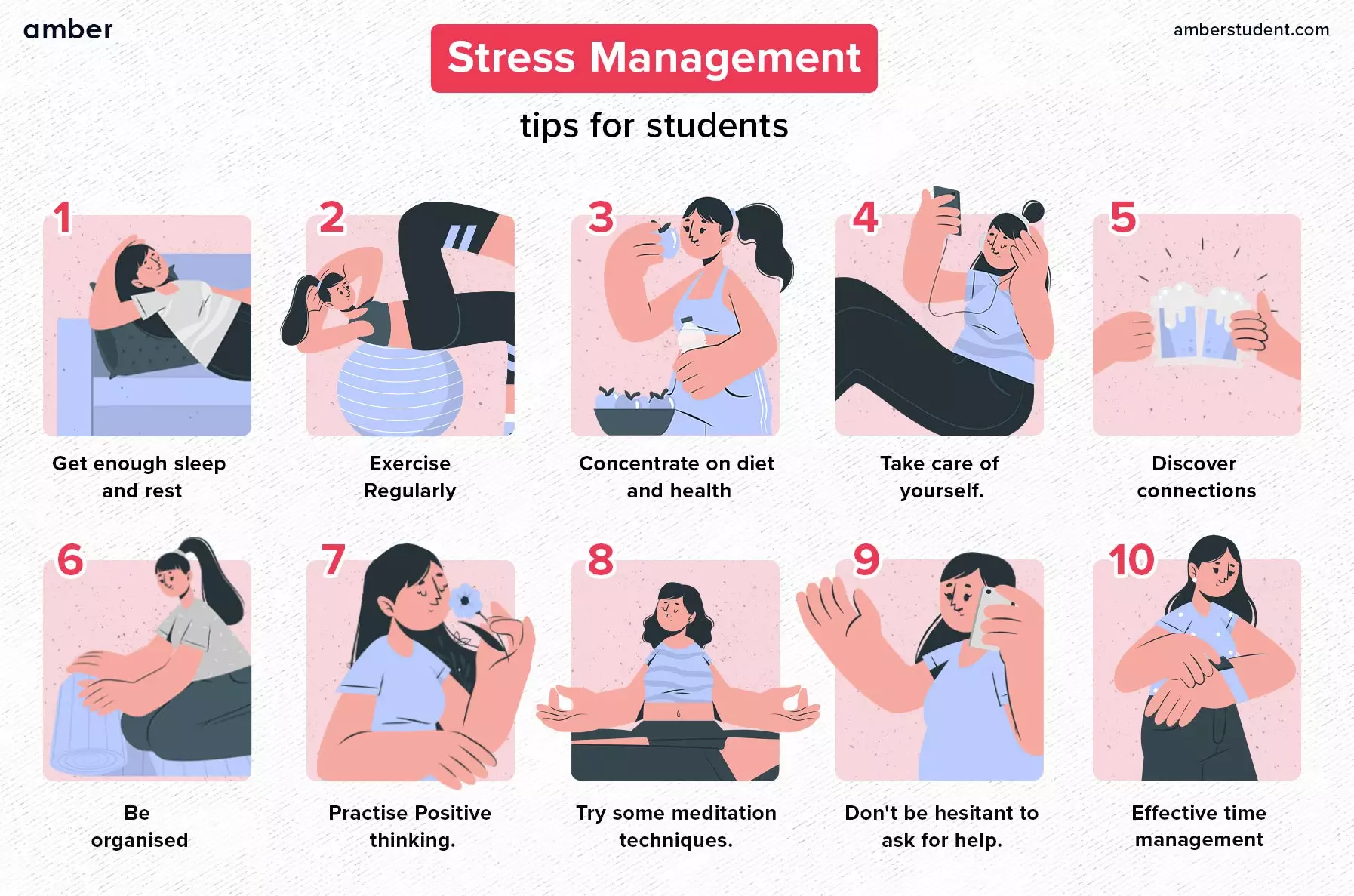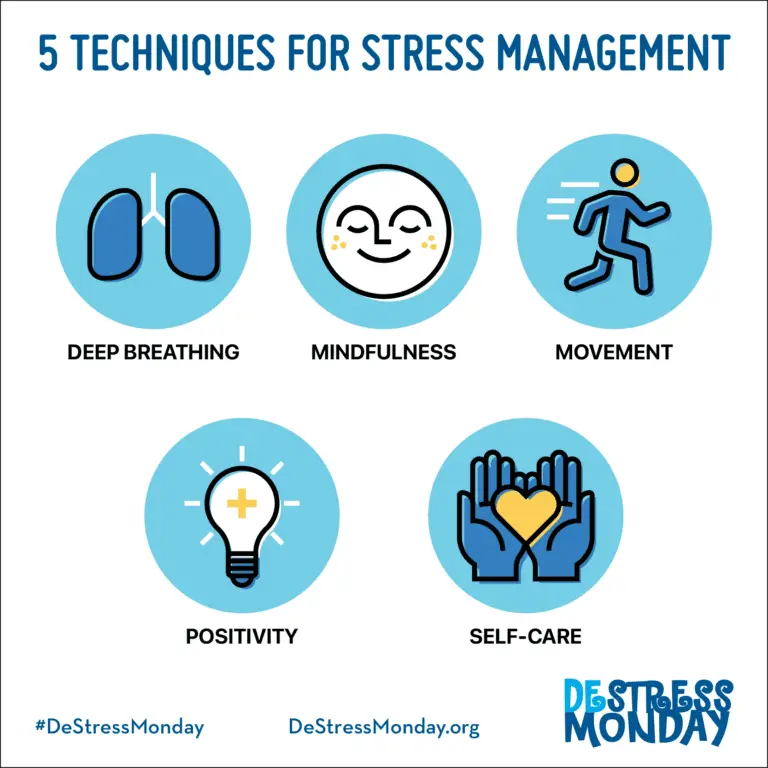Using ChatGPT for Stress Relief: Techniques and Dialogues

In today’s fast-paced and demanding world, stress has become an ubiquitous challenge. Conventional stress-relieving methods like meditation or exercise can be time-consuming or inaccessible. However, advancements in artificial intelligence (AI) offer a novel solution: using ChatGPT, a large language model, for stress relief.

Techniques for Stress Relief with ChatGPT:

1. Conversational Therapy: Engage in open-ended dialogue with ChatGPT, confiding your stressors and seeking its empathetic responses. The model’s non-judgmental listening and supportive language can simulate the experience of talking to a therapist, providing emotional release and reducing perceived stress levels.
2. Mindful Reflection: Prompt ChatGPT to generate mindfulness exercises, such as body scans or breathing exercises. Its guided meditations and deep-breathing instructions can help calm the nervous system and promote relaxation.
3. Problem-Solving: Discuss specific stressors with ChatGPT. It can offer logical and practical advice, helping you gain new perspectives and develop coping mechanisms. By approaching problems from a different angle, you may find creative solutions to reduce stress triggers.
4. Cognitive Restructuring: Engage ChatGPT in thought-challenging exercises. It can identify negative thought patterns that contribute to stress and help you reframe them into more positive or productive ones.
Dialogues for Stress Relief:
Example 1:
User: I’m feeling overwhelmed with work stress.
ChatGPT: I understand. It can be challenging to manage work-related anxiety. Let’s talk through your concerns together.
Example 2:
User: I’m anxious about an upcoming exam. Can you help me calm down?
ChatGPT: Of course. Let’s practice some deep breathing exercises. Inhale slowly and deeply through your nose, filling your lungs completely. Hold your breath for a few seconds, then release it slowly through your mouth.
Example 3:
User: I’m having trouble sleeping due to stress. What can I do?
ChatGPT: Sleep disturbances are a common symptom of stress. Let’s explore some relaxation techniques to help you get restful sleep. We can also discuss ways to manage your stress before bedtime.
Benefits of Using ChatGPT for Stress Relief:
- Accessibility: ChatGPT is available anytime, anywhere, making it convenient for immediate stress relief.
- Cost-effectiveness: Accessing ChatGPT’s services is free of charge, unlike traditional therapy or stress management programs.
- Tailored Support: The model’s responses are customized to each user’s needs, providing personalized stress-relieving guidance.
- Anonymity: Conversations with ChatGPT remain confidential, offering a safe space for users to discuss sensitive issues.
While ChatGPT is a valuable tool for stress relief, it’s important to remember that it isn’t a substitute for professional mental health care. If stress persists or becomes severe, consult a qualified therapist or seek medical support.## Using ChatGPT for Stress Relief: Techniques and Dialogues
Executive Summary
ChatGPT, a groundbreaking AI language model, offers immense potential for alleviating stress through its ability to provide personalized support, facilitate emotional regulation, and promote relaxation. This comprehensive guide explores the various techniques and dialogues that harness the power of ChatGPT to reduce stress and improve mental well-being.
Introduction
Stress has become an epidemic in the modern world, affecting individuals of all ages and backgrounds. Traditional stress management strategies often fall short in providing long-lasting relief, highlighting the need for innovative approaches. ChatGPT emerges as a powerful tool that can supplement existing coping mechanisms and revolutionize stress management.
FAQs
1. How does ChatGPT alleviate stress?
ChatGPT utilizes natural language processing and machine learning to understand and respond to user queries. By providing empathetic support, helping users identify stress triggers, and suggesting relaxation techniques, ChatGPT aids in reducing stress levels.
2. Is ChatGPT a replacement for therapy?
While ChatGPT can provide support and guidance, it’s not a replacement for therapy with a licensed professional. It complements existing treatments by offering additional resources and insights that may not be accessible elsewhere.
3. How do I access ChatGPT?
ChatGPT is freely available through OpenAI’s website. Users can create an account to access the chatbot interface, where they can converse with the AI model and utilize its stress-relieving capabilities.
Top 5 Subtopics
1. Personalized Support
- Empathetic listener: ChatGPT provides a non-judgmental listening ear, allowing users to express their feelings and experiences without fear of criticism.
- Tailored responses: The AI model generates personalized responses based on the user’s input, addressing their specific needs and concerns.
- Problem-solving assistance: ChatGPT offers practical strategies for managing stress, ranging from lifestyle changes to mindfulness techniques.
- Self-reflection prompts: Thought-provoking questions help users gain a deeper understanding of their stress triggers and patterns.
2. Emotional Regulation
- Stress identification: ChatGPT helps users recognize and label their emotions, empowering them with self-awareness.
- Cognitive reframing: The AI model challenges negative thought patterns and supports users in adopting more positive perspectives.
- Emotion regulation exercises: ChatGPT provides guided meditations, journaling prompts, and other exercises designed to calm the mind and reduce emotional intensity.
- Positive language and affirmations: By using uplifting language and providing positive feedback, ChatGPT reinforces a sense of self-worth and resilience.
3. Relaxation Techniques
- Guided meditations: ChatGPT leads users through mindfulness and relaxation meditations tailored to their needs and preferences.
- Breathing exercises: The AI model teaches simple and effective breathing techniques to promote physical and mental relaxation.
- Visualization exercises: Guided imagery and visualization help users de-stress and escape from overwhelming thoughts.
- Music therapy: ChatGPT provides curated playlists or suggests calming music to help users unwind and reduce anxiety levels.
4. Cognitive Restructuring
- Challenging negative thoughts: ChatGPT guides users in examining and disputing irrational or self-defeating thoughts that contribute to stress.
- Cognitive dissonance resolution: The AI model helps users identify and reconcile conflicting thoughts and beliefs that may cause stress and anxiety.
- Positive self-talk: ChatGPT encourages users to challenge negative self-talk and develop a more positive inner dialogue.
- Cognitive reframing exercises: Through guided exercises, ChatGPT helps users reframe stressful situations in a more constructive and empowering light.
5. Holistic Wellness
- Sleep optimization: ChatGPT provides tips on improving sleep hygiene, promoting restful nights that reduce daytime fatigue and stress.
- Nutritional guidance: The AI model suggests stress-reducing foods and drinks, as well as providing meal recommendations to support mental well-being.
- Exercise suggestions: ChatGPT encourages physical activity as a natural stress reliever and offers personalized exercise plans.
- Self-care prompts: The AI model reminds users to prioritize self-care activities that promote relaxation and stress reduction, such as spending time in nature, engaging in hobbies, or connecting with loved ones.
Conclusion
ChatGPT represents a transformative tool in the realm of stress management. Through personalized support, emotional regulation, relaxation techniques, cognitive restructuring, and holistic wellness guidance, ChatGPT empowers individuals with practical strategies to reduce stress, improve mental well-being, and cultivate resilience. By incorporating ChatGPT into their daily lives, users can harness the power of AI to alleviate stress and create a more balanced and fulfilling life.
Keyword Tags
- Stress Management
- ChatGPT
- Emotional Regulation
- Relaxation Techniques
- Mental Well-being
